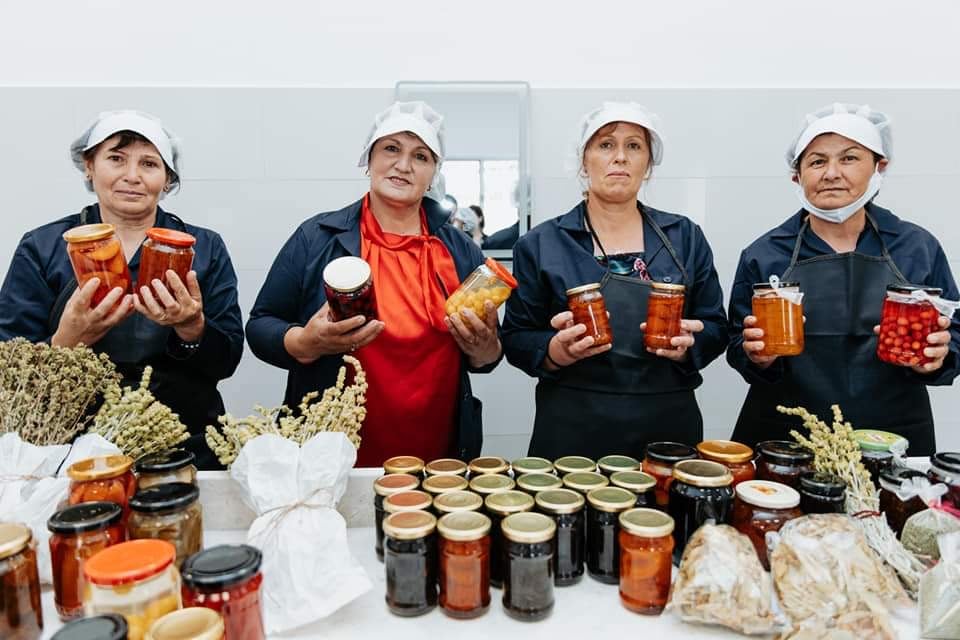Empowering women's roles in agriculture – a new women-led agribusiness incubator opens in Albania
Date:

The Food and Agriculture Organization (FAO) and UN Women, in partnership with the Municipality of Kolonja and the Ministry of Agriculture and Rural Development, inaugurated a pioneering women-led agribusiness incubator in Leskovik, southeastern Albania. This workspace called “Duarartat” (Golden Hands) will be used for processing fruit and vegetables, as well as packaging artisanal products from Southeastern Albania for distribution in the domestic market. The establishment of the incubator aims to enhance women's welfare, promote gender equality, and foster sustainable rural development. It was supported by “Gender Rural Equality and Tourism” (GREAT) initiative with funding from the Government of Italy.
"This agribusiness will supply locally branded 'Made in Leskovik' products to both local and international markets, supporting economic development in the region and ensuring food security,” said Erion Isai, Mayor of the Municipality of Kolonja.
Deputy Minister of Agriculture and Rural Development, Enio Civici, affirmed the government's commitment to supporting new investments aimed at creating collection points that bridge the gap between farmers and markets. Speaking at the inauguration of the 'Duarartat' agribusiness laboratory, Civici highlighted its establishment under the "Gender Rural Equality and Tourism" project, emphasizing its role in empowering rural women in Albania and enhancing their contribution to rural development within the 2030 Sustainable Development Agenda framework.
In his speech, Franco Turri, representative of the Italian Agency for Development Cooperation (AICS), underscored the integration of new technologies, infrastructure improvements, and capacity building to create a gender-sensitive entrepreneurial environment in agriculture. “This approach aims to elevate women's economic status through knowledge and innovative technology,” Franco Turri said.
UN Women Representative to Albania, Michele Ribotta highlighted the crucial role of the incubator in advancing the economic empowerment of rural women, with a view to dismantling barriers and gender-based inequalities that restrict their full participation in economic growth and rural development.
Raimund Jehle, FAO Representative in Albania, highlighted FAO's commitment to promoting the economic empowerment of rural women in the agribusiness sector. “The women-led agribusiness incubator in Leskovik brings together research, knowledge, technology, local government, and women’s groups to seek innovative and gender-sensitive alternatives for unlocking the potential and transforming the agricultural sector and achieving poverty reduction and food security,” Raimund Jehle said. He noted the importance of investing in income-generating activities that promote economic growth, social development, and a fair competitive infrastructure for women in Albania.
The women-led agribusiness incubator was supported by the “Gender Rural Equality and Tourism” (GREAT) initiative, a three-year project funded by the Italian Ministry of Foreign Affairs and International Cooperation and implemented by FAO and UN Women in Kolonja and Elbasan municipalities. The project aims to empower women in rural Albania by strengthening their roles in rural development in alignment with the 2030 Sustainable Development Agenda's principle of Leaving No One Behind.